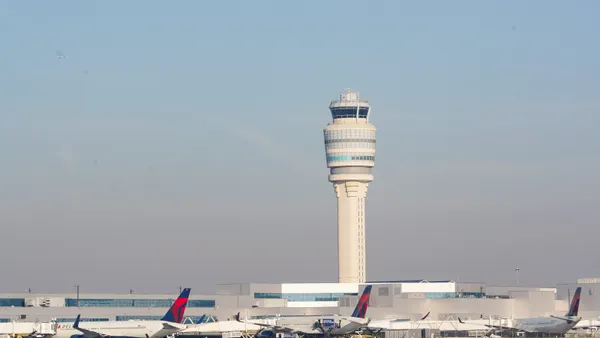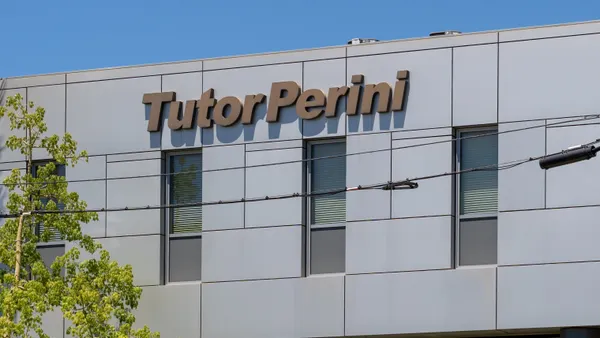Dive Brief:
- Sen. John Thune, R-SD, chairman of the Commerce, Science and Transportation Committee, said last week that progress on President Donald Trump's $1 trillion infrastructure plan could be sidelined until 2018, according to The Hill.
- Legislators are currently busy with issues around tax reform, healthcare, the debt ceiling, aviation and other government spending programs, and Thune said the planned introduction of an infrastructure bill in the fall by the Trump administration could lead to debate that could "spill into" 2018.
- The Trump infrastructure proposal was central to the president's 2016 campaign, but the administration has been releasing details on the initiative on a piecemeal basis since the inauguration.
Dive Insight:
Deatils of the president's infrastructure plan so far include leveraging $200 billion in direct federal spending to spur $1 trillion in total investment. The possibility of public-private partnerships (P3s) has figured heavily into the equation, but some lawmakers, particularly Senate Minority Leader Charles Schumer, D-NY, have expressed concerns about privatization of public assets and have argued that any massive infrastructure program should have a significant federal spending component.
Republicans have continued to resist committing major government funds to an infrastructure program that resembles a stimulus and have promised to block any such bill.
In the 2018 budget proposal, the administration drove home its intentions to promote private investment over public spending and requested a cut in Department of Transportation program funding by 13%, which represents what could be the elimination of the Federal Transit Administration's Capital Investment program, spending for long-distance Amtrak service and Transportation Investment Generating Economic Recovery (TIGER) grants.
Most recently, the administration announced that it was converting the FASTLANE (Fostering Advancements in Shipping and Transportation for the Long-term Achievement of National Efficiencies) initiative into the Infrastructure for Rebuilding America (INFRA) program and would prioritize projects that were otherwise supported by private and non-federal money, as well as those for rural infrastructure.
The president has also assembled an infrastructure task force to advise him and guide his infrastructure initiative. The head of the group, billionaire Richard LeFrak, has suggested streamlining the permitting process, which can sometimes take as long as 10 years for a very large project, by using the arbitration-style, single-source decision-making method employed by bankruptcy courts.
The ongoing delay of the release of the president's full infrastructure plan as well as conflicting rumors over timing on a vote on it are creating a sense of uncertainty in the industry as contractors wait to find out whether — and when — they could see a boom in activity.












